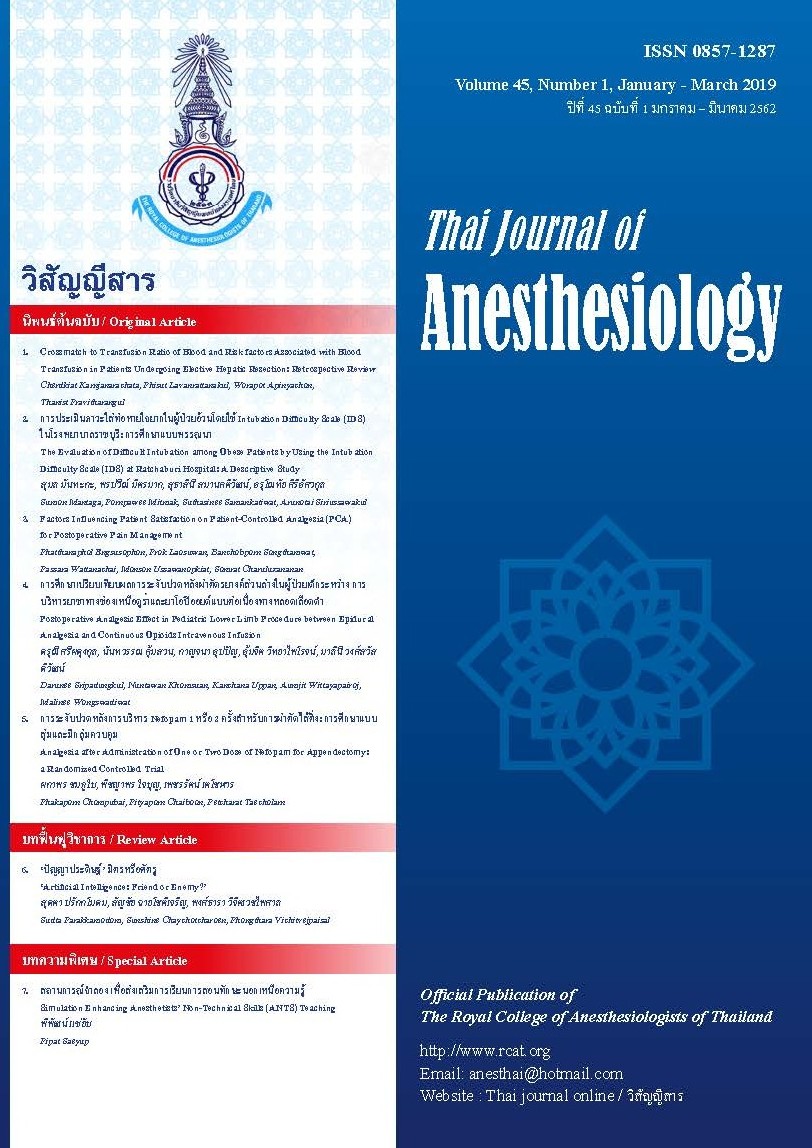Simulation Enhancing Anesthetists’ Non-Technical Skills (ANTS) Teaching
Main Article Content
Abstract
Several studies have found that most of anesthetic
complications are related to personnel errors. Consequently,
anesthetists’ non-technical skills (ANTS), the cognitive,
social, and personal resource skills that complement
technical skills, is important to prevent those problems.
Crisis situation simulations encourage ANTS teaching for
anesthesiology residents by exposing them to unanticipated
experiences. There are several steps for simulation
preparation. However, the important steps are not only
observing their reaction in simulation room but also
debriefing and advising by experienced anesthesiologists
after completing the simulation. As a result, this practice
will improve them through self-evaluation and error
correction in their future career. This article aims to illustrate
steps of ANT teaching by simulation and to explain
observed behavior evaluation by rating scales.
Article Details
References
anesthesia mishaps: a study of human factors. Qual Saf
Health Care 2002;11:277-83.
2. Flin R, Patey R, Glavin R, Maran N. Anaesthetists’
non-technical skills. Br J Anaesth 2010; 105(1): 38-44.
3. กษณา รักษมณี. การเรียนการสอน Non - Technical Skills
ทางวิสัญญี. Thai J Anesth 2015; 44(1): 47-52.
4. Lateef F. Simulatiom-based learning: just like the real thing.
J Emerg Trauma Shock 2010;3(4): 348-52.
5. Fletcher G, McGeorge P, Flin R, Glavin R, Maran N.
Anaesthetists’ non-technical skills (ANTS): evaluation of a
behavioural marker system. Br J Anaesth 2003; 90: 580-8.
6. Flin R, Patey R, Glavin R, Maran N. Framework for observing
and rating Anaesthetists’ Non-Technical. 1st ed. Aberdeen:
UniPrint; 2012.
7. Savoldelli GL, Naik VN, Park J, Joo HS, Chow R, Hamstra
SJ. Value of debriefing during simulated crisis management.
Anesthesiology 2006;105(2):279- 85.

